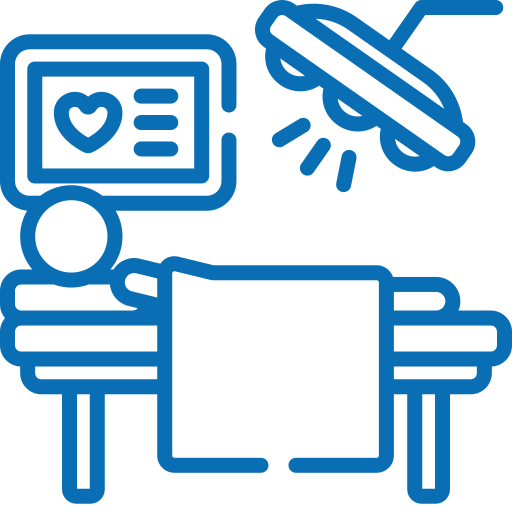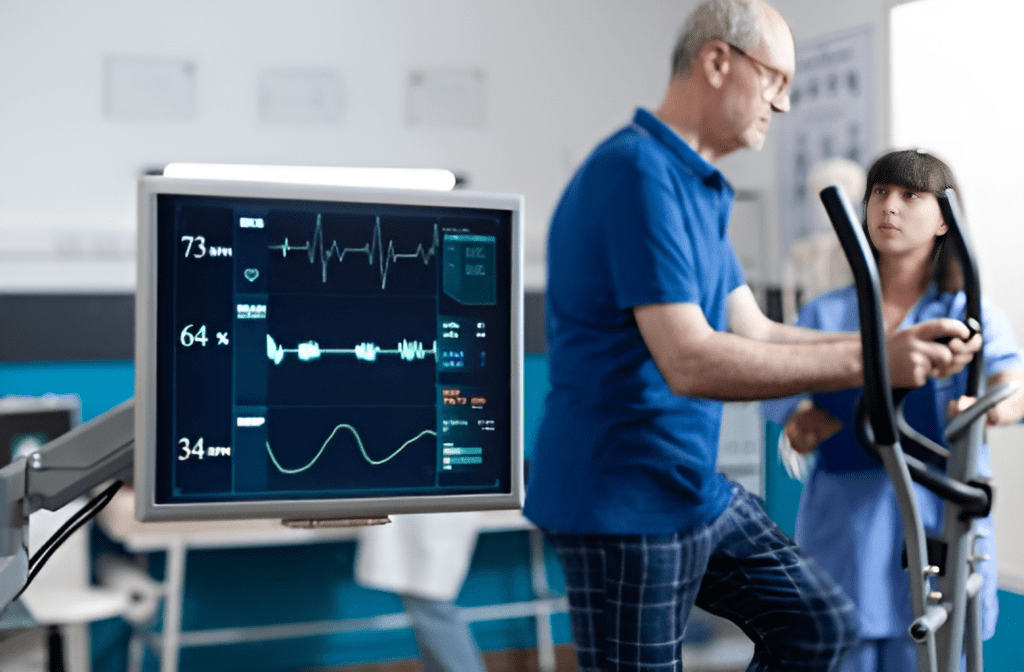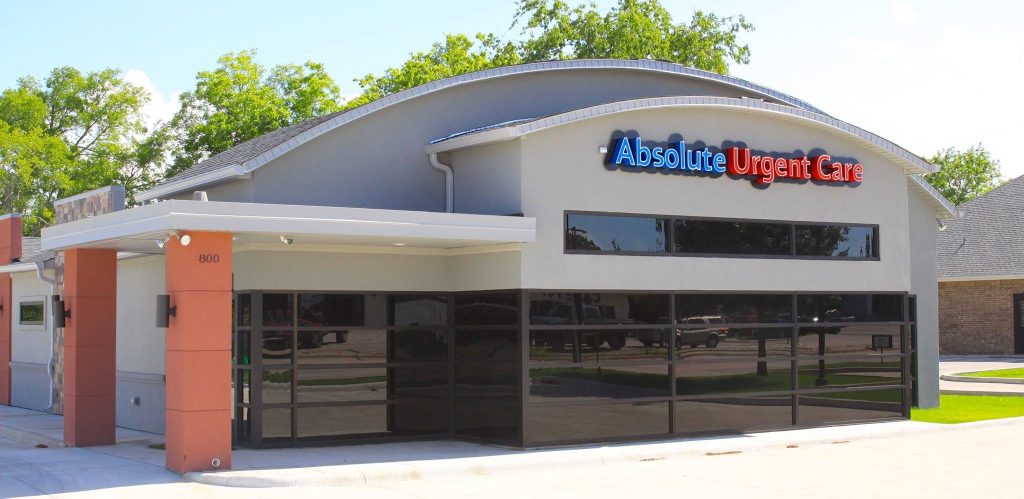The heart centres around your existence as it pumps blood, oxygenates you, and performs many functions to keep you healthy and alive. However, most people are ignorant of heart health until something goes wrong. Regular cardiovascular health assessments are hence necessary. Protecting your heart is essential, especially considering that heart disease remains the number one killer in the USA.
Many individuals find medical care to be of high priority in their lives given the circumstances. This has led to many people opting for urgent care facilities for quick examinations and tests. If you experience chest pain, shortness of breath, or you just want a normal assessment, this discussion will provide you with a clearer picture of what will happen when you go in for a cardiac assessment at urgent care.
For our patients at Absolute Care, we offer fast heart check-ups as part of our comprehensive health assessments as we are well aware of the importance of conserving our patients’ time whilst also providing them with heart points. In this blog, we will explain to you the patient evaluation process in urgent care in terms of heart health checks as well as its significance.
Why Cardiovascular Health is Important
Cardiovascular health includes diseases and disorders touching issues concerning the heart, blood vessels and circulatory system. Such aspects as heart disease, hypertension, stroke and high cholesterol levels which are some of the most common causes of mortality within American borders are included here.
It is also very important to note that abstaining from high blood cholesterol, high blood pressure, and irregular heartbeats are essential in order to preserve the vital health of the body, which prevents the body from suffering cardiovascular complications.
Spot problems
Regular routine checking of heart health makes it possible to spot problems early and thus resolve them before a stage is reached when a serious complication has already developed, for instance, a heart attack or stroke. Quite a significant proportion of individuals may have these problems developing gradually without them being aware of any of the symptoms, hence self-monitoring is still important.
Absolute Kare is one of the urgent care centres that offer patients a seamless way to see their heart health without an appointment from their primary care physician. Urgent care clinics are open all hours of the day and are able to serve patients who walk in regardless of their schedule, making it possible for all kinds of people to be served.
Significance of the Evaluation of Cardiovascular Health During the Visit to Urgent Care Clinic
The goal of modern urgent care facilities is to be able to treat patients who need medical attention where their conditions are not life-threatening and may even have cardiovascular issues. Urgent care clinics can assist whether you are suffering from chest pain, feeling your heart racing or, if you are simply looking to have a health check-up done
An urgent care centre should be a good place for a cardiovascular health check; here’s why:
- Immediate Walk-ins: Most of the urgent care centres are accessible for walk-ins. This means that you don’t have to book an appointment on a date that’s so far away.
- Easy Access: The majority of urgent care centres are located in areas where primary care clinics are closed during late evenings and weekends.
- Lower Costs: Urgent care centres are relatively much cheaper than emergency room and specialist visits, especially for individuals that do not have insurance cover or that have a high deductible plan.
- Prompt Feedback: Getting to an urgent care centre is a good option because they have fast testing and diagnostic results.
We bring all the above and much more, making it simpler for the population to engage in preventative measures for monitoring the health of their hearts.
What Can You Expect When Getting Your Heart Checked at Urgent Care?
Urgent care facilities are usually efficient and organised. Therefore, it can be expected when checking for any cardiovascular issues while at an urgent care provider. Here is what the complete process looks like.
1. Evaluation of Medical History and Assessment of Risk Factors.
In order to check one’s heart health or cardiovascular health, the first step that will follow is the interpretation of one’s health background. A set of questions relating to a person’s normal day-to-day habits will be included.
- Diet: Do you have foods that are rich in salt and fat?
- Exercise: Are you active and do you work out regularly?
- Smoking: Are you a cigarette or tobacco smoker?
- Alcohol: How many drinks do you consume in a day?
- Family History: Can you provide details regarding heart disease in your family?
A healthcare official will also inquire about recent symptoms experienced by the patient, such as mild chest pain, sensations of spinning, breath shortness, and rest.
Since there are a number of factors involved which can easily assist a medical professional in evaluating a patient’s general health and likelihood of cardiovascular issues, this step holds great importance. Age, sex, family history, and lifestyle activities, for example, have immense significance when it comes to the chances of being a heart patient.
2. Physical Examination
Once your medical background is assessed, the provider will conduct a physical examination to further check your heart. While conducting a physical assessment, the healthcare provider may:
- Measure your blood pressure: From routine research, this is another common risk factor for developing high blood pressure. The provider uses a cuff to measure both the systolic and the diastolic. Continuous follow-up goes a long way in the early detection of hypertension, thus controlling other ailments.
- Examine your heart: This biophysical examination uses instruments such as a stethoscope to detect abnormalities such as murmurs and/or any other indications of abnormal rhythm, which could be a pointer to heart disease.
- Search for any other symptoms: The examining provider will check for lower limb oedema or an anomaly in normal patterns of respiration, as fluid accumulation in the body might signify some heart ailments.
3. Blood Tests
Some of the heart-related markers include cholesterol. Providers at Absolute Care may sometimes require patients to undergo blood work assessment to check for the presence of these markers. The most common blood tests associated with one’s cardiovascular health are the following:
- Cholesterol levels: This test determines LDL (low-density lipoprotein, or bad cholesterol), total cholesterol, HDL (high-density lipoprotein, or good cholesterol), and triglyceride levels. Heart disease is likely to develop if one’s LDL cholesterol levels and triglyceride levels are high in contrast to low levels of HDL.
- Blood sugar levels: Considering that diabetes significantly raises the chance of developing heart disease, a blood glucose level could also be ordered to test for the existence of prediabetes or diabetes and, if necessary, treat them.
- C-reactive protein (CRP): This blood test determines if there are inflammatory processes occurring in the body, which may also indicate atherosclerosis.
In this regard, blood contains relevant information for the doctor, who will assess the heart as well and decide if a lifestyle change, medication, or both are warranted.
4. Electrocardiogram (EKG/ECG)
An EKG (electrocardiogram) is a physical procedure that does not penetrate the person but records the electrical signals produced by the heart. Heart rate and other abnormalities, like arrhythmias, are identified using this test. During the procedure, small pads known as electrode patches are affixed to the chest, arms, and legs of the patient to track the electrical impulses that control the heartbeat.
An EKG is also very critical in the evaluation of atrial fibrillation, heart attack, among other heart diseases that may not be detected during a clinical examination.
EKG testing is one of the tests that I provide, so whenever my patients come to me for comprehensive cardiovascular checks, I conduct it in order to detect potential issues as quickly as possible.
5. Assessment and Diagnosis
After carrying out the initial tests, the results shall be evaluated by the healthcare workers. If there are significant blood pressure, cholesterol levels, or abnormal EKG results, the healthcare provider may request additional tests or could refer the client to a specialist.
For example, high blood pressure or high cholesterol levels might necessitate a stricter diet, exercise, or quitting smoking. Certain medications may also be prescribed in some cases.
If there are no issues that require immediate attention, the provider will be responsible for giving advice to safeguard the heart through preventive measures such as diet, exercise, and stress management.
6. Follow-up Care
In the event that any issues are flagged during the check of your cardiovascular health, follow-up care shall be important. A health worker from Absolute Urgent Care may allow you to book another appointment as a follow-up or may arrange an appointment with other specialised health professionals.
Patients who provide typical test results may seek check-ups from time to time to ensure that the heart remains in shape and ever ready. Cardiovascular health is a continuum that requires changing or refining habits and medications over a period of time.



















